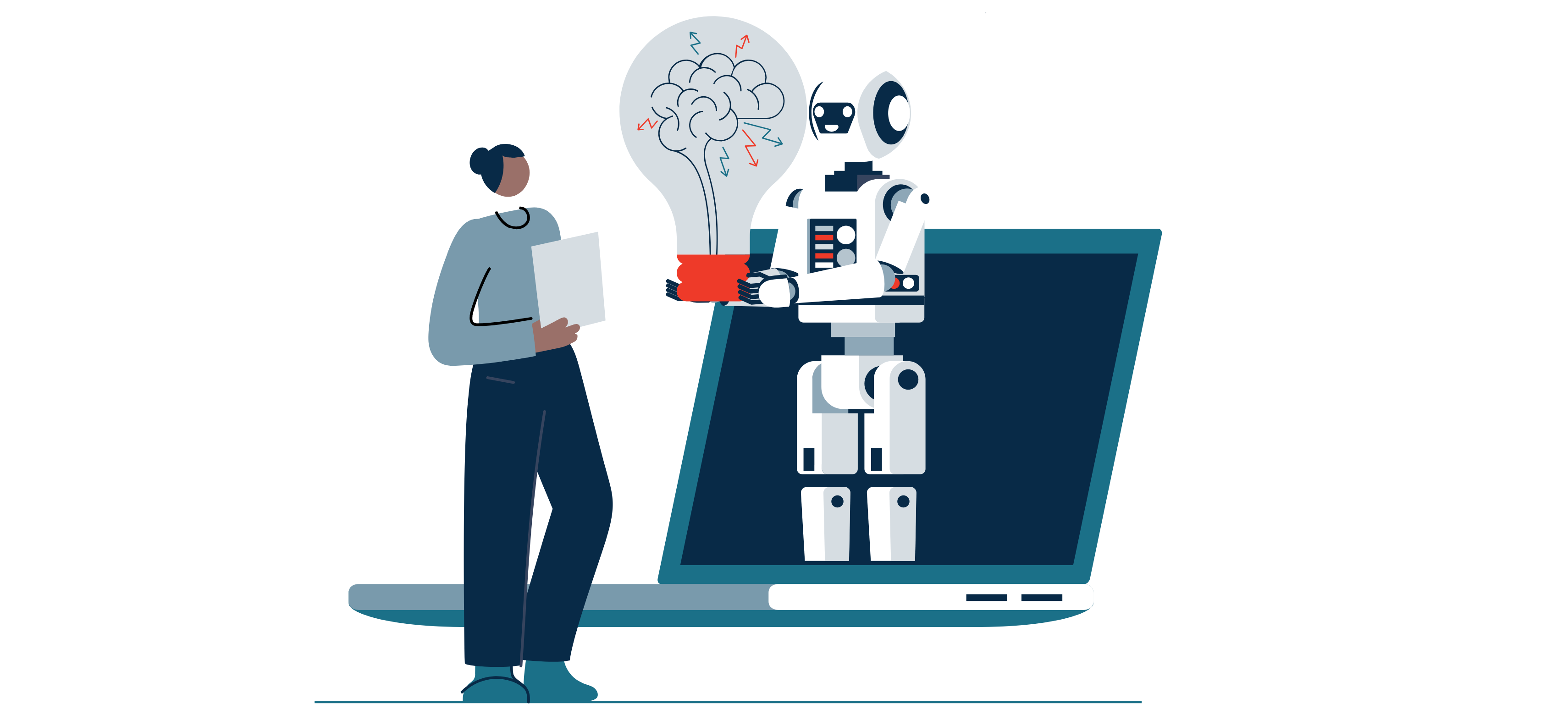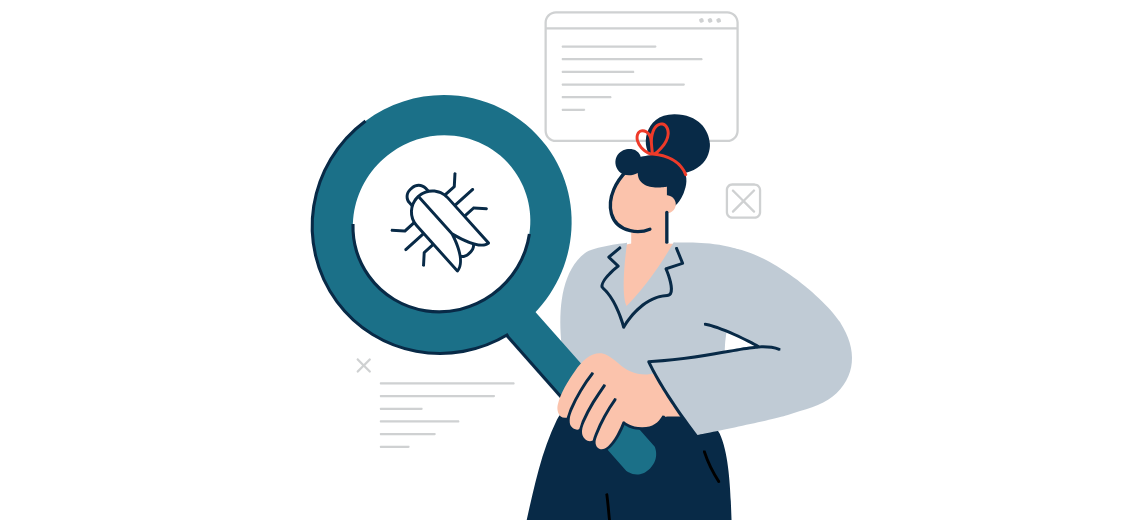
Technology Resources for the Sector
Technology Resources for the Sector
Contents:
- Digital transformation for not-for-profits
- How can not-for-profits improve efficiencies to maximise impact?
- What is digital transformation?
- What are the best practices for a successful digital transformation journey?
- What are the best resources for digital transformation?
- Cyber security and scams for not-for-profits
- How can not-for-profits protect themselves from cyberattacks?
- What are some resources for cyber security and scam protection for not-for-profits?
- Artificial intelligence for not-for-profits
- How can not-for-profits use artificial intelligence?
- What are some resources for not-for-profits use AI to improve their efficiency and impact?
- Data for not-for-profits
- How can not-for-profits improve their use of data?
- What are the best practices and tools for NFPs to use data effectively?
- Digital marketing for not-for-profits
- How can digital marketing help not-for-profits?
- What are the best digital marketing strategies and tools for not-for-profits?
- Discounted technology tools
The Digital Technology in the Not-for-Profit Sector report is an annual research project conducted by Infoxchange, a not-for-profit social (NFP) enterprise which has been operating for 35 years. The report recognises areas of strength, growth and improvement by understanding how NFPs across Australia and New Zealand use technology, creating a benchmark for organisations to ensure they are making the most effective use of technology to achieve their mission.
In the report, we explore critical topics such as AI, cyber security, data systems and digital marketing. We know that when organisations invest in technology, this can improve their ability to deliver transformative impact.
Here are some helpful resources for NFPs seeking to address the top priorities and barriers identified in our survey.
Digital Transformation
Digital transformation – the process of making things easier via technology – is a necessity for NFPs to navigate increasing challenges on their mission to generate impact. But our report found that only 42% of organisations have an IT plan or digital transformation strategy in place. When a technology plan or IT strategy is in place, staff satisfaction improves by 28%.
What is digital transformation?
Digital transformation is the integration of digital technologies into an organisation. It helps enhance efficiency, agility and innovation, harnessing digital tools for better decision-making, limits administrative efforts and helps accelerate impact.
How can not-for-profits improve efficiencies to maximise impact?
Not-for-profits can improve efficiencies and maximise impact by embracing digital tools that streamline operations, enhance donor engagement and optimise resource management. By implementing cloud-based solutions, automating routine tasks and leveraging data analytics can help NFPs focus on their mission, and less on administrative burdens. This is known as a digital transformation strategy.
What are the best practices for a successful digital transformation journey?
Take the first step to learn about embarking on a digital transformation journey by reading our article on the 10 Steps to Digital Transformation. In this article, we go through real-life case studies of organisations we’ve worked with who have undertaken a digital transformation journey.
What are the best resources for digital transformation?
At Infoxchange, we’ve been delivering digital transformation journeys for hundreds of organisations across Australia, New Zealand, and the Asia-Pacific region. Visit our Digital Transformation Hub for a range of practical guides, NFP technology discounts and tailored advice from experts on all things technology to help you make a greater impact. You’ll find guides to:
» Technology foundations
» Information systems
» Digital marketing
» IT management
» Cyber security
» Data
Cyber Security and Scams
Cyber security and scams are key challenges for the sector. In our report, 57% of organisations reported they do not have multi-factor authentication for all internet-facing systems. Only 20% of organisations conduct regular cyber security awareness training for staff.
How can not-for-profits protect themselves from cyberattacks?
Not-for-profits can protect themselves from cyber-attacks by implementing strong cyber security practices, including introducing cyber security policies, setting robust passwords, enabling multi-factor authentication, regularly updating software, educating staff and volunteers on cyber risks and the steps to protect sensitive information.
Organisations should invest in cyber security tools, like firewalls and antivirus software, and conduct regular security audits to safeguard information. The risks of cyber attacks for NFPs are high and can cause long-term reputational and trust damage. It is critical that all staff and volunteers embrace being cyber stewards, to stay educated and alert for not if, but when scenarios.
What are some resources for cyber security and scam protection for not-for-profits?
» Visit our Cyber Safe Hub with webinars and self-paced learning to protect you, your organisation and vulnerable communities from scams.
» Read our guides on cyber security essentials and cyber security threats on the Digital Transformation Hub.
» Watch our insightful webinar recordings featuring leading experts in cyber security via our Digital Learning Hub.
» Learn about our privacy policy templates, including end user security and IT security policies in the Intermediate section of the Digital Transformation Hub Cyber Security page.

AI
In our 2024 report, 76% of organisations reported they use generative or conversational AI tools. This is a 52% increase over the previous year. AI can offer NFPs great benefits – helping reduce critical time needed in various roles, while helping to generate more efficient strategies for impact.
How can not-for-profits use artificial intelligence?
Artificial intelligence offers not-to-profits the opportunity to streamline operations, enhance fundraising and make more data-driven, intelligent decisions. Organisations can automate repetitive tasks, improve communications for donors and supporters, and optimise resource allocation.
AI can help NFPs achieve greater efficiency and drive more effective outcomes for the causes they support. But affordable tools and skilled resources can be hard to find, and many free AI tools are not committed to keeping information confidential.
What are some resources for not-for-profits to use AI to improve their efficiency and impact?
To navigate the rapidly evolving AI landscape, we recommend organisations:
» Provide staff with guidance on the risks and best use of ethical AI by introducing an AI policy in your organisation. You can use our template here.
» Help staff learn how to best leverage GenerativeAI tools. Read our primer on embracing AI for not-for-profits, our guide on Connecting Up to learn about tips and best practices, and how to access discounted AI tools available on our platform.
» Stay abreast of the AI landscape and opportunities and understand the ethical and secure roadmaps of key technology partners. This will help you and your staff to take advantage of future AI developments and features, learn where effort and resources might best be invested, while appropriately managing the risks of AI tools.
» Access high-value webinars on artificial intelligence across varying levels of expertise from basic to advanced capability levels on our Digital Learning Hub here.

Data
Data is a powerful tool for not-for-profits that can dramatically improve efficiencies and outcomes. Data tells us a lot – allowing organisations to better understand where to allocate resources, or whether an approach is working.
In our report, only one in 4 organisations agreed that their data is good and readily supports their reporting and analytics. Over half reported that their systems capture valuable information about their clients. When organisations have strong systems for capturing, processing, analysing and reporting data, they can amplify their success.
How can not-for-profits improve their use of data?
Strategic use of data makes it easier to make decisions and improvements, and gain more clarity via evidence in what’s happening on the ground. By unlocking data’s potential, NFPs can also better make use of more advanced technologies like AI, improving predictive analytics and measurement. But not-for-profits need to have strong data frameworks first.
What are the best practices and tools for NFPs to use data effectively?
We recommend organisations:
» Visit our Digital Learning Hub to browse the range of webinars with leading industry and sector data experts. These webinars have been designed for beginners, intermediate and advanced levels of data experience.
» Access our Data Toolkit provides access to resources for not-for-profit experts looking to enhance data capability, demonstrate impact and need via evidence, and measure important indicators against benchmarks. Resources include data governance tools, national population data resources, state government data portals, data ethics tools, AI resources and more.
» Read our article on how organisations can unlock AI with data transformation first, in AI Business here.
» Learn how critical First Nations Data Sovereignty (ID-SOV) is for improving outcomes for First Nations groups and how to abide by ID-SOV principles through our Guide to First Nations Data Sovereignty, an article made in collaboration with award-winning 100% Indigenous owned and run law firm led by Dr Terri Janke.

Digital Marketing
Digital marketing is an essential strategy for NFP growth. But our report found that only 28% of organisations agreed that their social media delivers value, that it’s worth investing time in, they get outcomes and are happy with how they use it. Thirty-eight percent agreed that their website delivers value, and just one in 3 organisations are happy with the look and feel of their email newsletters, and consider them integral to how they communicate with stakeholders.
How can digital marketing help not-for-profits?
Digital marketing for not-for-profits is essential to expand an organisation’s reach, engage with supporters, drive donations, and provide evidence of impact of their work. Organisations should leverage social media, email campaigns, search engine optimisation, digital advertising and available ad grants to accelerate the visibility of their cause.
An effective digital marketing strategy can also provide NFPs with valuable data and insights and help refine strategies to maximise impact.
What are the best digital marketing strategies and tools for not-for-profits?
We recommend not-for-profits peruse the NFP digital marketing guides we have available on the Digital Transformation Hub, watch our webinars featuring digital marketing experts, and check out the available discounted tools and products to help drive digital marketing strategies.
We recommend organisations:
» Read our guides on digital marketing on the Digital Transformation Hub, including information on how to promote your organisation and fundraise online, getting started on social media and email marketing, how to access Google’s free US$10,000 ad grants per year and more.
» Upscale your digital marketing skills, from improving your website to SEM and SEO skills and much more, by making use of the wide-ranging webinar recordings available on the Digital Learning Hub.
Discounted technology tools
We provide access to discounted technology tools, IT products and services for not-for-profits through our partnerships with technology providers on Connecting Up.
Visit Infoxchange’s Connecting Up platform to access donated and discounted technology, and our available education programs, including webinars, online courses and workshops specifically designed for the needs of people working in not-for-profits.
You can also read case studies of impact. Membership to the Connecting Up platform is free for NFPs. 
Read the 2024 Digital Technology in the Not-for-profit Sector report here.
More resources:
» Voluntary AI Safety Standard
» Free Introduction to AI TAFE training
Upgrade your impact with Infoxchange's professional services
In FY23-24, we are proud to have supported:
» 2.9 million+ people in need
» 38,000+ not-for-profit, community and government services
» $182 Million worth of discounts and donated tech delivered
“This has been an outstanding collaboration with Infoxchange. I couldn't recommend them highly enough. To have an impact, you have to have great partners… We can't afford to have that expertise sitting in-house…. Infoxchange has been added as a trusted partner…. We should have called them earlier!”
- Karen Wong, the Operations Manager for Allergy & Anaphylaxis Australia.
Read A&AA's digital transformation story here.
Discounts and donations
We help eligible NFPs access donated and discounted technology through the Connecting Up and TechSoup New Zealand platforms.
$182 million worth of technology discounts were facilitated through the Connecting Up program in the last financial year.
Our key partners include Microsoft, Dell, Adobe, Cisco, Google and Amazon Web Services.

IT Services
We offer best-in-class managed IT services, cyber support and training to the NFP sector, building technological capacity and helping organisations achieve their greatest impact. We are dedicated to serving the NFP sector and offer our services exclusively to for-purpose organisations.
We provided over 20,000 hours of tech support exclusively to NFPs in the last financial year.
Client and case management
Our enterprise client and case management (CCM) systems help organisations manage and measure their program performance and client outcomes, and simplify the process of complying with requirements from funders. Our technology has helped more than 5,800 community, NFP and government services and organisations in the last financial year. Our CCM systems are 100% Australian-built, owned and operated. Over 962,000 individuals have been helped via our client and case management systems this year. Over 485,000 electronic referrals were sent to social service organisations on behalf of people requiring support.
Service directory
Our service directory is Australia’s largest and most up-to-date directory of health services, featuring over 450,000 service listings across Australia. This directory powers Ask Izzy and is used by multiple NFPs and government departments. We also deliver the SAcommunity directory, supported by the South Australian Government. Seven million + search requests logged via Ask Izzy and our national service directory.
Digital Transformation Hub
Our Digital Transformation Hub team helps organisations improve their digital capabilities by providing consulting, coaching and free access to resources.
Over 29,000 organisations accessed essential resources to build their digital capabilities since the Digital Transformation Hub's inception.
In the last year, more than 10,000 organisations completed one or more of our digital capability programs.
"We can also quickly triage clients now. Previously, at peak times, some clients may have waited up to 6-8 weeks to see a counsellor, but they can now be assessed within a week and speak to a professional or join a support group immediately – this has a big impact on increasing our capacity."
- Leila, General Manager, The Deli Women and Children's Centre.
Read The Deli’s digital transformation story here.
"The successful partnership resulted in Spectrum flourishing within its new IT environment. The collaboration between Infoxchange and Spectrum continues as they work together to maintain operational and security excellence in the ever-evolving technology landscape."
- CEO, SPECTRUM
Read: Infoxchange helps Spectrum recover seamlessly from Cyber Attack.
